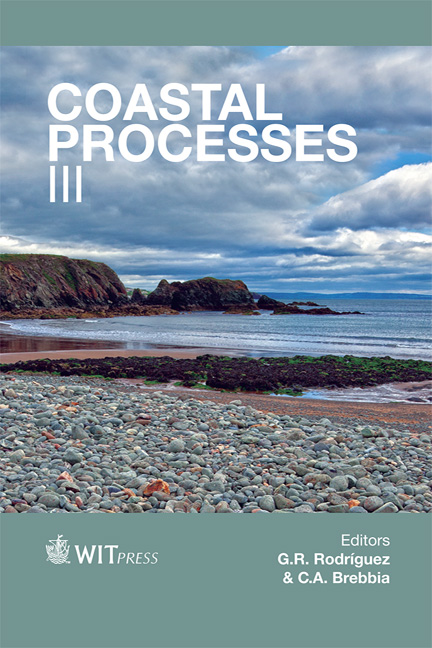Coastal Processes II
Edited By: G. Benassai, University of Naples Parthenope, Italy, C.A. Brebbia, Wessex Institute, UK and G. Rodriguez, Universidad de Las Palmas de Gran Canaria, Spain
Price
$317.00 (free shipping)
ISBN
978-1-84564-534-2
eISBN
978-1-84564-535-9
Pages
368
Transaction Series
WIT Transactions on Ecology and the Environment
Transaction Volume
149
Published
2011
Format
Hardback
Coastal regions present a complex dynamic web of natural and human related processes. Although coastal zones are narrow areas extending a few kilometres on either side of the shoreline, and occupying small strip of ocean and land, they play a very important role as they account for nearly a quarter of all oceanic biological production, which in turn supplies approximately 80% of the world’s fish. About 60% of the human population lives in the coastal zone, and around 70% of big cities are placed in this narrow area. Concomitantly, more than 90% of the pollutants generated by human economic activities end up in the coastal zone.
In order to reach satisfactory solutions for the demands imposed on the coastal areas and the protection of its environment, one needs to understand very different aspects and their interaction. The problems are essentially interdisciplinary and scientists need to be able to exchange ideas with colleagues from other disciplines with a variety of different experiences. Thus, an acceleration of research is needed to improve the quality of the coastal processes prediction, together with an adequate level of scepticism about the model results and a continuous comparison with well-documented case studies and field experiments.
This is the reason why, after the successful experience of the first Conference in Malta, the Wessex Institute of Technology, the University Parthenope of Naples and the University of Las Palmas, Gran Canaria decided to convene a second International Conference in Coastal Processes (of which this book comprises the edited papers) grouped into the following topics: Coastal Management; Coastal Processes and GIS; Coastal Geomorphology; Extreme Events and Sea Level Rise; Coastal Processes and Navigation; Sediment Transport and Erosion; Interaction between Coastal Defences and Processes; Pollution and dispersion; Hydrodynamic Forces.








